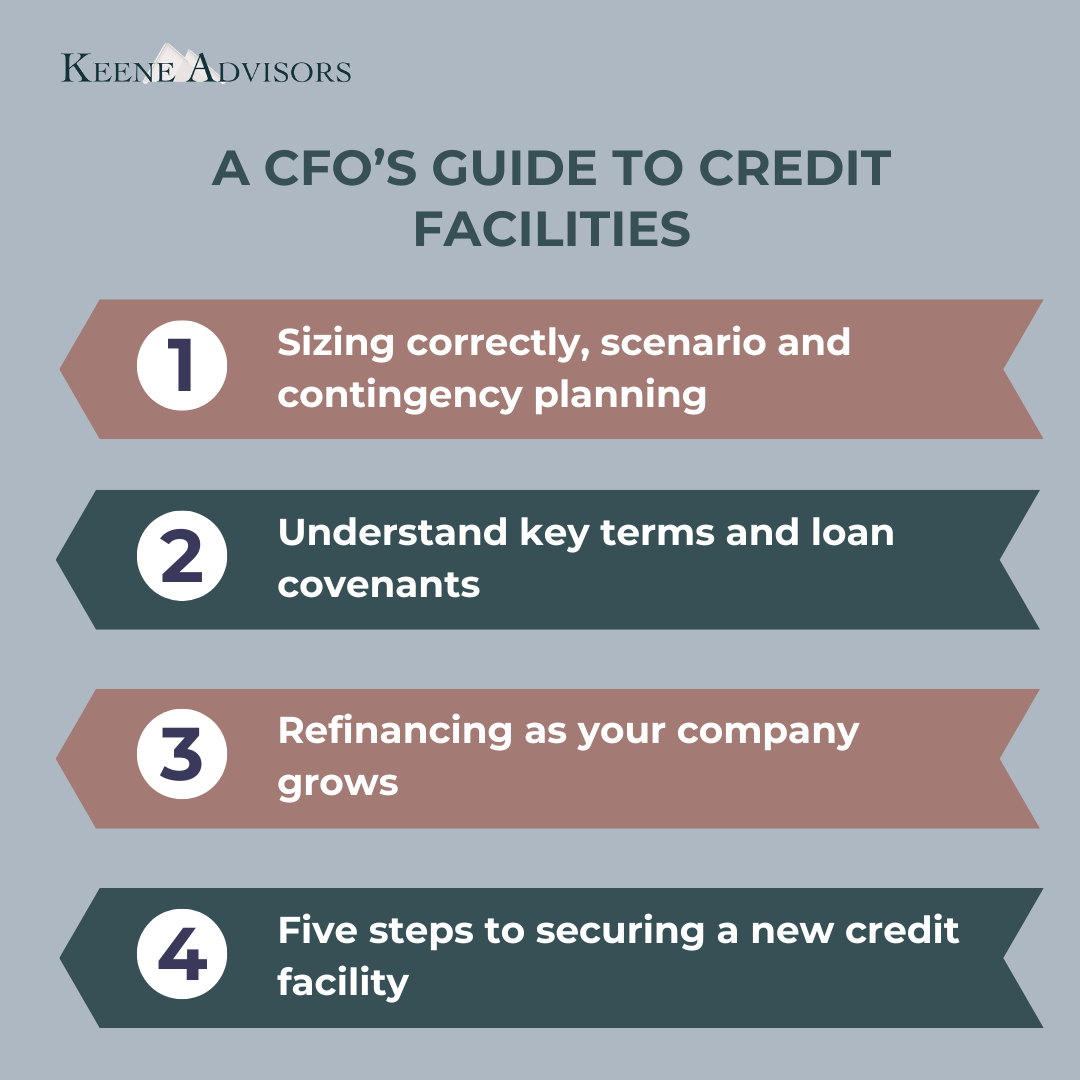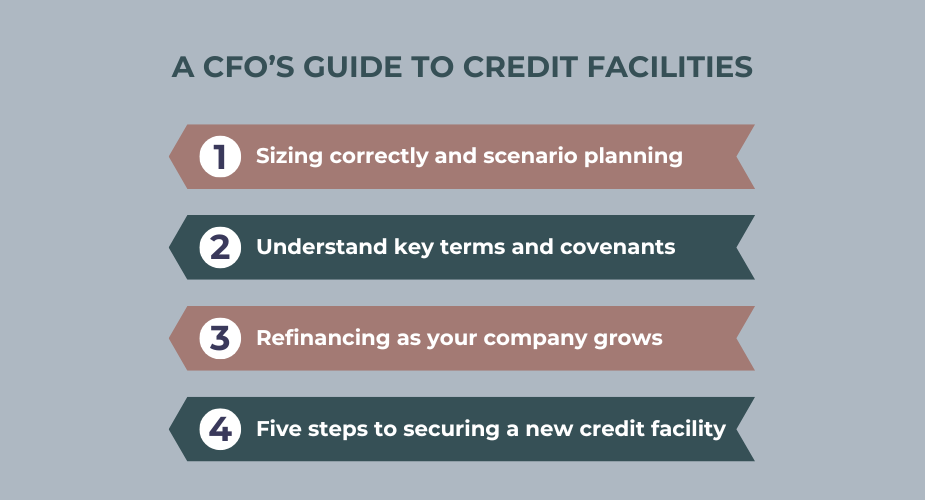Credit Facility Playbook: A CFO's Guide
To invest in future growth, having access to a well-structured credit facility should be a CFO or Finance Leader’s top priority. From optimizing your capital structure to ensuring liquidity, learn to refinance your credit facility to access additional working capital, fund growth initiatives, and navigate unforeseen challenges.
Learn how to optimize your credit facility with our expert insights:
Key credit facility terms, including pricing and fees
How to best analyze short-term and long-term liquidity requirements, with a revolving credit facility and term loan
Affirmative, negative, and financial loan covenants in a credit facility
Refinancing your credit facility’s size, terms, and covenants as your company grows
Guidance on negotiating the most competitive pricing on your credit facility agreement







